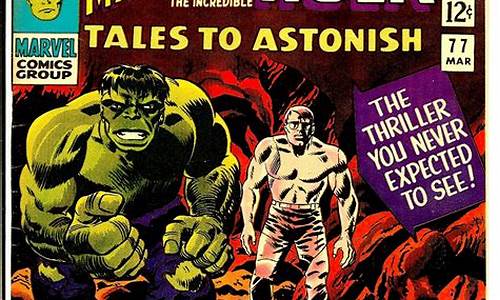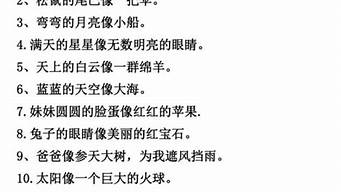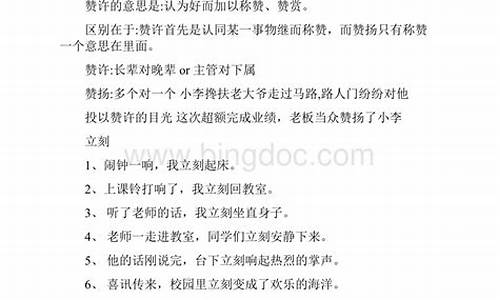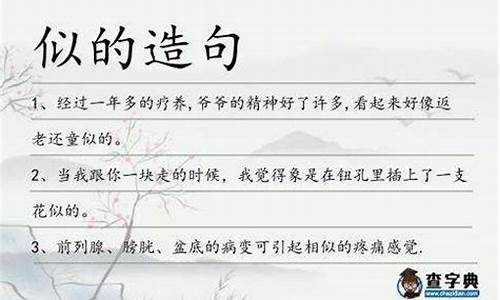astonish_astonish名词和形容词
1.surprise是什么意思,surprise的用法?
2.以sh,结尾的英文单词
3.astonish和surprise有什么区别
4.astonish , amaze , shock , wonder , surprise的用法问题
5.astonish和amaze的区别
6.如何记忆astonish
7.amazing astonish surprise区别

astonish at使对…感到吃惊;
astonish the world使世界震惊;
astonish beyond measure感到万分惊异 扩展资料
astonish very much使非常惊讶;
astonish amazingly非常吃惊;
astonish blankly惊呆了;
astonish dramatically出人意料地吃惊;
astonish greatly使非常惊讶;
astonish inconceivably难以置信地惊人;
astonish inexpressibly无法形容地吃惊
surprise是什么意思,surprise的用法?
The ending of the novel will astonish you.
的结局会让你大吃一惊。
The magician's next trick will astonish you.
魔术师的下一个技巧将使你们大为惊讶。
The decision makes everybody feels astonish.
决定使大家都感到震动。
People open their mouths when they heard the astonish news.
听到这条令人震惊的消息时,人们都惊得张大了嘴巴。
望纳!
以sh,结尾的英文单词
形容词 (人)感到惊讶的用surprised;形容此 (事情)令人惊奇的用surprising。
surprise
n. 意想不到(或突然)的事; 令人惊奇的事(或消息等);惊奇;出人意表的做事方式;出奇制胜的策略。
v. 使惊奇;使诧异;使措手不及; 无意中发现。
扩展资料:
astonish,surprise,amaze。这些单词都可作及物动词,意思相近,一般都是以事物作主语,人称作宾语,
astonish?表示“使大吃一惊”,“几乎使人无法相信”之意。
surprise?只表“出乎意料之外”。
amaze?强调“使惊讶”,有时还有“惊叹”,“佩服”等意。
astonish和surprise有什么区别
以sh,结尾的英文单词
astonish
vt. 使惊讶
美 [?'stɑn?]
We and the world are knit together by Einstein's thinking in ways that astonish me.
通过爱因思维的思维,我们和世界是编织在一起的,这让我大吃一惊。
cash 金钱
gosh
brush
astonish , amaze , shock , wonder , surprise的用法问题
这两个动词都含有“惊异”或“震惊”之义,并且用法也基本相同。但其具体含义还是有区别的。
1、astonish 语意较强,指对意外的事,特别是不可解释的事“感到惊讶”或“觉得大为惊惊异”,等于surprise greatly。
例如:
I was astonished to see him there.在那能见到他,我感到惊异。
I was astonished at the news.听到这则消息我大吃惊。
His words astonished all.他的话使大家感到惊讶。
2、surprise 语气比astonish弱,指突然地或意外地“惊奇”、“诧异”或“惊骇”。强调出其不意的含义。也可指乘其不备地向某人“袭击”、“吐真言”等。
例如:
We were surprised at finding the laboratory empty.我们惊讶地发现实验室是空的。
His death surprised us all.他的死使我们大家都感惊愕。
We were surprised that he lost the game.我们对他在比赛中失败感到惊异。
惊异造句:
1, 他那张嘴唇薄薄、饱经风霜的面孔上,露出惊异的神色。
2, 墙外有数十人,面面相觑,各有惊异之状。
3, 人们向他投去惊异的目光。
4, 他迅速举起镜子,脸上露出不知所措的惊异神情。
5, 她以一种乐滋滋的惊异目光望着他。
震惊造句:
1、可怕的威力,震惊了全世界。
2、这消息恰似晴天霹雳,令人十分震惊!
3、我们听到朱老师病重的消息都大为震惊。
4、最令人震惊的是,销售量在近几周扶摇直上。
5、他视死如归的英雄气概使敌人大为震惊。
astonish和amaze的区别
astonish,amaze,surprise本意为惊讶、吃惊;shock由电击、震动引申为震惊、激动;wonder由好奇、疑惑引申为惊奇、惊叹、惊诧。
surprise,astonish,astound,amaze作为动词在一起比较的一般含义是“使吃惊”。
surprise 是通用词,它的含义是使人一愣。这种吃惊可能包含着高兴也可能包含害怕或忧虑。
In spite of this, some people including myself-were surprised by a recent exhibition of modern sculpture.
尽管如此,最近举办的现代雕塑展览会却使一些人——包括我在内——吃了一惊。
I rang the bell and was not surprised to see that Herbert was as fat as ever.
我按响了门铃,毫不觉得奇怪地看到赫伯特仍然和以往一样胖。
astonish 在现代英语中通常表示某事使人震惊得难以置信。
The successful laying of the Atlantic cable astonished everybody: its later breaks astonished no one; but after it was finally in operation. many said that no future invention could surprise them.
在大西洋底下成功地铺设了电缆,这使得大家都感到骇然; 后来有几处电缆折断了,谁也不感到惊奇。不过在这些电缆终于投入工作之后,许多人都说,未来的任何发明再也不会使人吃惊了。
He was astonished at what he found. A man was lying in the box on top of a pile of woolen goods.
他所看到的使他大为震惊,箱子里的一堆毛织品上面躺着一个人。
astound 比 astonish 的词义强得多,常用于表示某件事你虽然认为有可能,但与你所发现的实际情况之间有很大差距。
The police were astounded when Mrs Ramsay told them what she had done.
当莱姆赛夫人把自己所做的事告诉了警察时,他们为之骇然。
amaze 所表示的吃惊中包含着使人迷惑不解、困窘或惊疑不定。(maze是迷宫)
When the archaeologists reconstructed the fragments, they were amazed to find that the goddess turned out to be a very modern-looking woman.
当考古学家把那些碎块拼起来的时候,他们惊诧地发现那女神原来是一个现代装束的妇女。
Scientists he been amazed to find that it can cut through the hardest rock with great ease.
科学家惊诧地发现,它可以轻而易举地钻穿最坚硬的岩石。
如何记忆astonish
这两个词,在很多情况下可以互换,但是也略有区分,这可以通过它们的英语解释看出来:
astonish:v.affect with wonder 使惊讶
A matter of repeated occurrence like this will not astonish people.
重复出现的事物不会使人吃惊。
amaze:v.
1. affect with wonder
Your ability to speak six languages amazes me!
2. be a mystery(神秘,秘密;奥秘) or bewildering ( 使人困惑的;令人产生混乱的)to
可见,除了使吃惊的意思之外,amaze还有让人感到神秘或迷惑不解/混乱之意,这是前者所没有的意思。
祝你开心如意!O(∩_∩)O~~
amazing astonish surprise区别
Day 325 morning 2021
1、astonish:使惊讶
咱们有个词叫“五雷轰顶”,用来形容人的极度震惊。英语恰巧也用“打雷”来指人的惊讶。
as 来自前缀 ex- 变体,此处表强调。词根 ton, 雷,拟声词,同 thunder. 指如被雷击,-ish 为后缀。
2、单词 arition 的字面意思就是“出现”。由于该词最初使用于宗教场合,表示“耶稣基督显灵”,因此该词主要用于表示幽灵鬼怪等事物的出现。
词根词缀: ap- 加强意义 + -par- 出现 + -ition 名词词尾。和ear (出现)是同源词。
Now I stared at this sudden arition with my eyes fairly starting out of my head in astonishment. Remember, I had crashed in the desert a thousand miles from any inhabited region. And yet my little man seemed neither to be straying uncertainly among the sands, nor to be fainting from fatigue or hunger or thirst or fear.
amaze强调“使惊异, 困惑”间或还有“惊叹, 佩服”的意思。像amazing,就表示对一个很神奇,很爽的事情的惊叹。
We were amazed at the ingenuity with which they solved their difficulties.他们在解决困难中所表现的智慧使我们惊叹[佩服]。
astonish表示“对不平常的事大吃一惊”、“几乎无法使人相信”, 但没有“惊叹”的意思。
I was astonished at his rudeness.他的粗野使 我大吃一惊。
surprise是通用词,它的含义是使人一愣,这种吃惊可能包含着高兴也可能包含害怕或忧虑,语气较弱。
We were surprised at finding the house empty.我们惊讶地发现房子是空的。
声明:本站所有文章资源内容,如无特殊说明或标注,均为采集网络资源。如若本站内容侵犯了原著者的合法权益,可联系本站删除。












